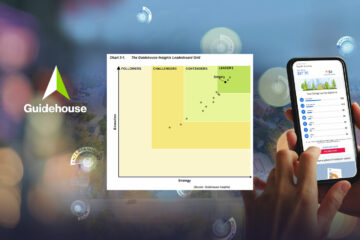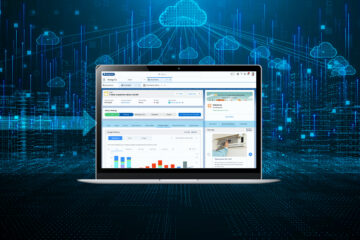There’s good reason why customer engagement (CX) is at the top of most businesses’ priority lists. But, with so many ways of doing business that didn’t exist 20 years ago—from SaaS to virtual power plants—what does the term actually mean, and why should it matter to your utility?
Why Customer Engagement Is King
Customer engagement doesn’t have a singular meaning; it depends largely on the industry. For much of the service industry, the term centers around capturing the whole market of customers with a niche need (e.g. a commercial HVAC system). For content providers like Netflix, YouTube, and Facebook, customer engagement is all about visit duration: keeping customers engaged. And for e-commerce marketplaces like Amazon, customer engagement is focused on turning first-timers into repeat customers.
The task is to stay top of customers’ minds, either habitually (e.g. every time someone sits down to watch TV after dinner, they think Netflix) or when they need a specific service (e.g. every time someone needs a gift, they think Amazon).
In each case, customers generate revenue for companies either by spending money or viewing ads. The more engagement, the more revenue; it’s that simple.
Customer Engagement In The Utility World
Energy retailers have historically had few opportunities for up-selling and cross-selling, so customer engagement has been purely about retention. Do customers open your emails, do they click on them, do they repeatedly visit your website?
For retailers further along their CX journeys, metrics like call center volume decrease or enrollment in rebate programs become key.
But unless you give customers an experience they look forward to, whether that’s an engaging social campaign, great deals, or convenient products, they’re not going to stay engaged for long. Further, you have the added hurdle of trying to engage homeowners for whom the cost of energy as a percentage of income is so small that they have little incentive to pay attention.
Even for energy retailers who clear these hurdles, one critical piece is missing: you don’t generate revenue from CX. Partly, that’s attributable to the fact that your industry is set up as a regulated monopoly, where utilities aren’t allowed to make money from their customers when using assets paid for by regulatory costs, like smart grid and smart meter data. It’s time that changed.
How Your Utility Can Win At Customer Engagement
Here’s how utilities can win at long-term CX, and win at generating capital that can be used for cost offset and ratepayer return for regulated utilities, and new revenue for deregulated utilities.
It begins with technologies like load disaggregation, which allow you to know more than ever about your customers: what appliances they use and their condition, their habits, when they go on vacation.
And if your first thought is “isn’t that a breach of privacy?”, note that unless shared with any third party, having this information doesn’t pose any privacy risk. The information is only seen by machines, and customer purchasing behavior isn’t privacy-protected anyways.
Disaggregation technology allows utilities to match consumer needs with the right products and services, whether they’re energy related or not—a complete sea change from the role you’ve played in your customers’ lives thus far.
And you’re uniquely positioned to do so: you have a captive audience—everyone buys energy— and unique insight into your consumers lifestyle and home appliances. This, combined with manufacturers’ volume rebates, direct channels and affiliate percentage return from energy retailers adds up to significant new dollar value creation per customer.
Now, you’re not only understanding your customers’ needs without asking them, you’re also providing them unique deals that make their lives easier. It’s Amazon and Groupon rolled into one.



0 Comments